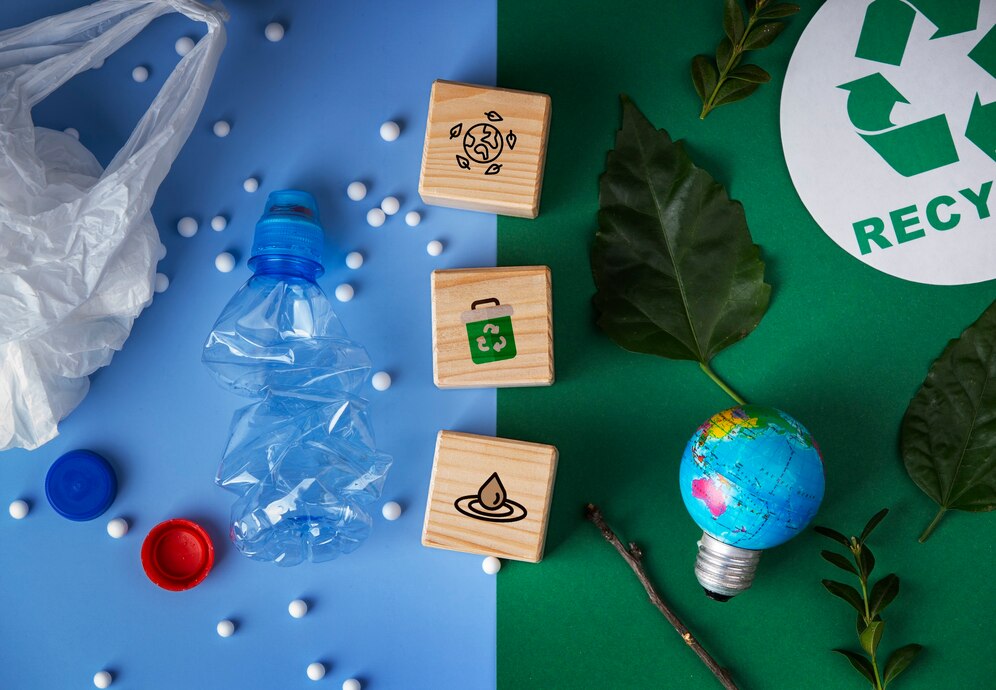The world is facing an increasing waste crisis, seriously affecting the environment and human health. Businesses, with their important role in the economy, have the responsibility to join hands to protect the environment by minimizing waste in production and business activities. In this article, join EQUO to learn 5 effective strategies to help green businesses reduce waste, increase production efficiency, and save costs, contributing to building a green and sustainable business model.
1. What is a waste reduction strategy?
A waste reduction strategy is a plan designed to reduce the amount of waste generated from daily production, consumption, and operational activities. It is an important part of an organization or community's sustainability strategy, aimed at protecting the environment and natural resources.
>> Read More:
- Zero Waste: Understanding the Basics and How to Start
- Compostable vs. Biodegradable: Definitions, Differences, And Applications In Environmental Protection
- Environmental Protection - What Is It and How To Protect It?
- Waste: Origin, Classification, Processing, and Recycling
- 10 Easy Tips On How To Live A Green Lifestyle
2. Benefits of waste reduction strategies for green businesses
In the context of climate change and environmental pollution becoming increasingly urgent, applying waste reduction strategies plays an extremely important role for businesses. Not only does it bring economic benefits, but this strategy also contributes to creating a green brand image, attracting customers, and protecting the environment.
2.1. Cost savings
Implementing a waste reduction strategy can help green businesses reduce costs associated with waste treatment and disposal. By reusing and recycling materials, businesses can reduce the cost of purchasing new materials and products, as well as reduce waste disposal costs and fees associated with waste removal.

Source: Internet
2.2. Enhance brand image
Implementing a waste reduction strategy can also create a positive and attractive brand image for customers and the community. Green businesses are often seen as environmentally and socially responsible organizations, and implementing measures to reduce waste is a way of demonstrating their commitment to the environment and the community.

Source: Internet
2.3. Build customer loyalty
Customers are increasingly interested in supporting environmentally and socially responsible businesses. Implementing a waste reduction strategy can help green businesses attract and retain customers by demonstrating their commitment to environmental protection and sustainable development.

Source: Internet
2.4. Use resource efficiency
Implementing a waste reduction strategy also helps green businesses use resources more effectively. By reusing and recycling materials, businesses can reduce the amount of new resources needed, thereby reducing pressure on the environment and natural resources. At the same time, efficient use of resources can also reduce the production and operating costs of enterprises.
In general, waste reduction strategies bring many great benefits to green businesses, including economic, environmental, and social benefits. Applying this strategy not only helps businesses save costs and enhance their image but also contributes to protecting the environment and community. Therefore, this is an important strategy that businesses need to aim for in the current context.
3. Waste reduction strategies for green businesses
Here it some effective strategies to help businesses reduce waste, contributing to environmental protection and sustainable development.
3.1. Reducing single-use plastics
One of the most important strategies for reducing waste is to minimize the use of single-use plastic. Businesses can do this by promoting the use of environmentally friendly packaging products, such as plant-based straws instead of plastic straws, and compostable food containers instead of boxes.
With the mission of protecting the environment and promoting a green lifestyle, EQUO constantly creates and develops a variety of natural products, contributing to replacing disposable plastic products.
- Plant-based straw set that decomposes itself: Made from coffee, bagasse, coconut, grass, and rice, safe for health, and completely compostable in the natural environment.
- Food containers: Made from sugarcane bagasse, which is a sustainable natural resource that is renewable and decomposes quickly. The outstanding characteristics of bagasse fiber lie in its durability, flexibility in packaging, and breathable and waterproof qualities.
- Utensils: This is a great choice for eco-friendly and durable tableware sets.
- Paper cups and lids with water-based coating: Using a water-based coating, instead of plastic (PP, PE, or PLA), helps the production process emit less carbon dioxide (CO2) and minimizes negative impacts on the environment during decomposition compared to regular paper cups. These cups completely decompose in the natural environment within 18 weeks and come in various sizes, suitable for a wide range of uses.
Let's join hands with EQUO to use environmentally friendly products. For more information about EQUO product lines, please visit the following link:
>> https://shopequo.com/collections

3.2. Sort and collect waste
Sorting and collecting waste in the workplace is an important way to reduce the amount of waste sent to landfills. Businesses can organize waste sorting and recyclable collection programs to ensure that waste is processed efficiently and with the least impact on the environment.

Source: Internet
3.3. Use single-sided paper for drafts
To reduce paper consumption and reduce paper waste, businesses can encourage employees to use single-sided printing paper as scratch paper. This not only helps save paper resources but also reduces the negative environmental impact of paper production and transportation.

Source: Internet
3.4. Propaganda to raise employees' awareness of savings
Strengthening propaganda and employee training on saving resources and reducing waste is an important part of a business's waste reduction strategy. By creating a positive and environmentally conscious work environment, businesses can promote sustainable action from employees.

Source: Internet
3.5. Organize donation programs
Organizing donation and recycling programs can help businesses reduce waste while contributing to social causes and environmental protection. These programs may include collecting and recycling old items, donating to nonprofit organizations, or supporting environmental projects in the community.

Source: Internet
Applying a waste reduction strategy not only helps businesses save operating and waste treatment costs but also brings many other great benefits. A "green" brand image will attract customers, and build reputation and trust in the community. Businesses also contribute to protecting the environment and creating a sustainable future for themselves and future generations.
Reducing waste is not only the responsibility of the community but also the mission of every business. Businesses need to be proactive in developing and implementing waste reduction strategies appropriate to their specific operations. Raising awareness for employees and encouraging them to join hands to protect the environment is the key for businesses to succeed in the fight against waste. Let's take action today with EQUO to contribute to building a green, sustainable future for your business and the planet.


